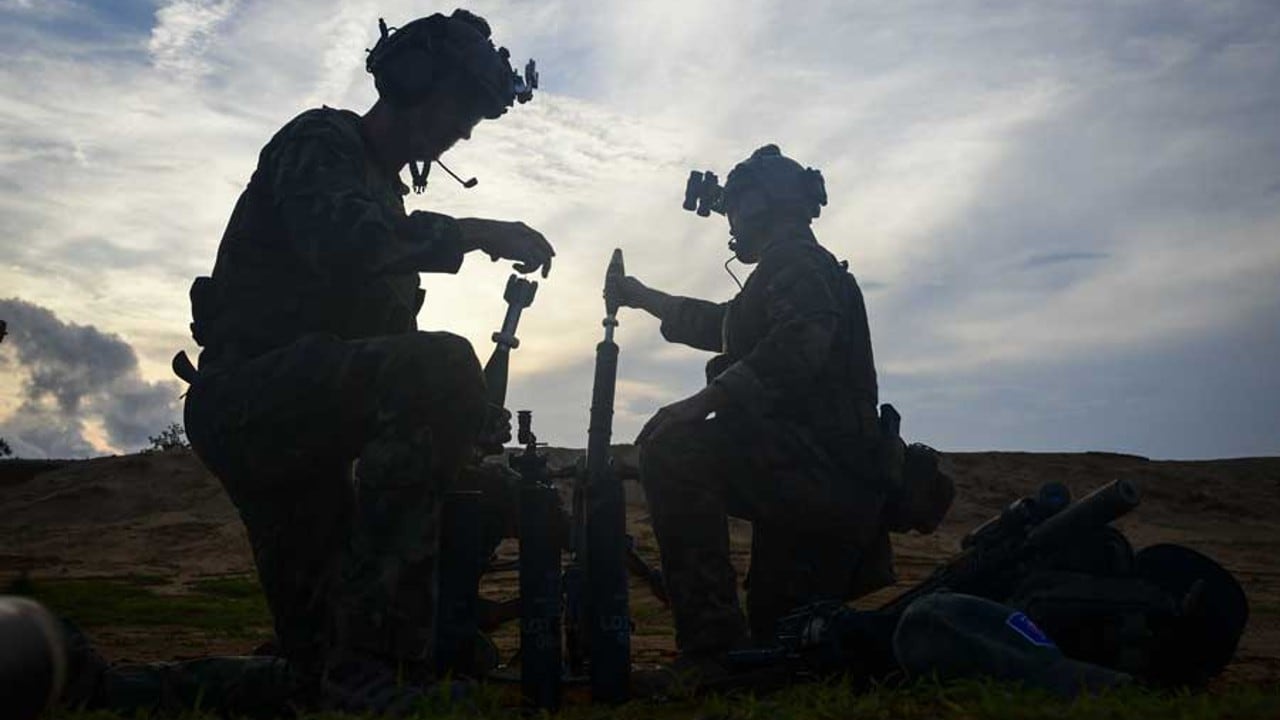Whether it was in a high school, mall or a recruiting station, for many Marines their first interaction with the Corps happened when talking to a recruiter.
Recruiters work tirelessly to fill the ranks of the Corps, and the position can come with certain financial and career perks.
In spite of those, the long hours and uncertainty that come with the recruiter job has made it hard for the Marine Corps to find enough volunteers to fill the role.
RELATED

The lack of volunteers for recruiting duty was one of the reasons the Corps still has the Headquarters Marine Corps Special Duty Assignments Screening Team list, commonly referred to as the HSST list, which forces Marines to apply for special duty assignments or leave the Corps.
To reduce the Corps’ reliance on the HSST list the Marine Corps has launched a program to “recruit the recruiter,” giving an additional $10,000 and choice of recruiting station to Marines who volunteer for the role.
“If you volunteer and you really want to go, you’re going to do much better,” Col. Reginald McClam, the head of enlisted assignments at Marine Corps Manpower and Reserve Affairs said.
So far, the Corps has seen success with 456 Marines volunteering for recruiter roles, as of Nov. 22, compared to roughly 100 volunteers in 2020, McClam said.
“For every volunteer the Marine Corps gets … it allows the assignment folks to put 3.5 Marines back in formations out in the fleet, it is real gained equity,” McClam added.
Though the numbers have improved they still fall short of what is needed to fill annual recruiter class spaces.
In 2020 there were 999 recruiter spaces and in 2021 the number was at 998. Meaning, even with the improved volunteer numbers the Corps still had fewer than half of the needed number of new recruiter volunteers for the job.
The Corps has extended the time period to volunteer for special duty assignment from Dec. 31 to Feb. 28, according to a recently released administrative message.
The Corps’ recently relaxed its policy on tattoos, which previously kept Marines who wanted to become recruiters from joining the ranks.
As part of the extensions for the volunteer period, the Corps explicitly asked those who were denied because of their tattoos to volunteer again.
“Marines that have been disqualified for tattoos in the past may now be eligible for SDA opportunities and are encouraged to submit a request for assignment,” the MARADMIN released on Tuesday said.
“That opens up a whole new population of individuals who were volunteers previously that couldn’t go on those duties,” Sergeant Major of the Marine Corps Troy Black said in early November.
The Corps is also changing its philosophy about the force, hoping to retain more and recruit less. The change may not see a reduction in front line recruiters, but may say see a reduction in recruiter support roles, slightly lowering the demand to fill the position, the sergeant major added.
But overall the HSST list looks like it is here to stay.
“But the requirements have to filled, those won’t go away no matter what happens in manpower management,” Black said.
“When there’s no volunteers there’s the HSST list,” he added.




